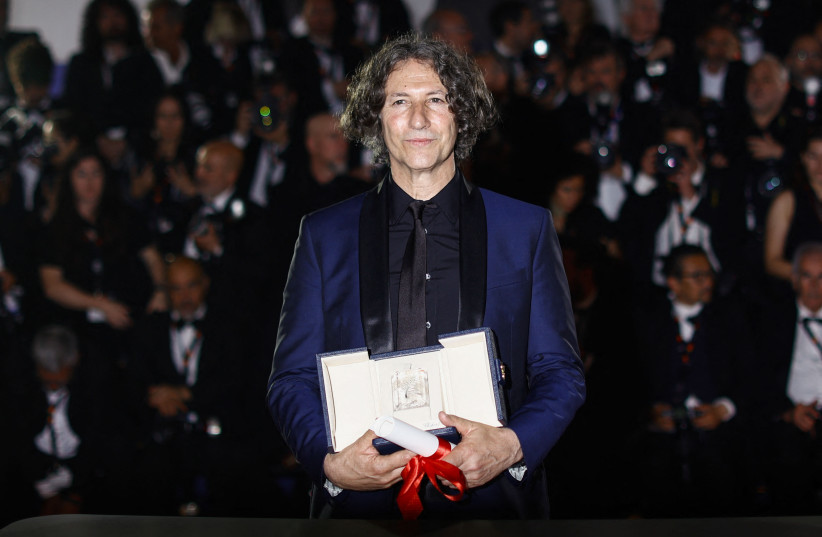‘Zone of Interest’, film on Auschwitz commandant, wins second-highest prize at Cannes
Jonathan Glazer’s film “The Zone of Interest,” a film about the commandant of the Auschwitz concentration camp Rudolf Höss and his wife, won the Grand Prix award at the Cannes Film Festival, the second-most prestigious prize at the festival, on Saturday.
“The Zone of Interest” centers on Höss and his family as they set up a life next to the Auschwitz death camp in occupied Poland, where more than 1.1 million people were murdered in the largest of the concentration camps and extermination centers built by the Nazis.
Glazer said he wanted to show the capacity for violence in all people with the film, which was shot entirely at Auschwitz.
‘A reflection on ignorance as a disease that connects the past with the present’
The film has received widespread acclaim with Variety calling it “a movie that holds human darkness up to the light and examines it as if under a microscope” and Vanity Fair calling it “a prodigiously mounted wonder, gripping and awful and terribly necessary to its time.” The “critics consensus” on Rotten Tomatoes reads “Dispassionately examining the ordinary existence of people complicit in horrific crimes, The Zone of Interest forces us to take a cold look at the mundanity behind an unforgivable brutality.”
 Director Jonathan Glazer, Grand Prix award winner for the film ”The Zone of Interest”, poses during the photocall after the closing ceremony of the 76th Cannes Film Festival in Cannes, France, May 27, 2023. (credit: Sarah Meyssonnier/Reuters)
Director Jonathan Glazer, Grand Prix award winner for the film ”The Zone of Interest”, poses during the photocall after the closing ceremony of the 76th Cannes Film Festival in Cannes, France, May 27, 2023. (credit: Sarah Meyssonnier/Reuters)The film additionally received the Fipresci award and the Cannes Soundtrack Award at the Cannes Film Festival this week.
The jury of the International Federation of Film Critics, which grants the Fipresci award, stated that the award was giving to Glazer’s film “for its formal radicality, the complexity of the sound and score, and its contrast between the invisible atrocities behind the wall and a supposed paradise. By presenting the horror as something usual, and using everyday like dialogues, it’s a reflection on ignorance as a disease that connects the past with the present.”
After the film received the award on Saturday, Dr Piotr M. A. Cywiński, director of the Auschwitz-Birkenau Memorial and Museum, stated “I would like to thank Jonathan Glazer for coming to the Memorial without any prior assumptions, prejudice or preconceived notions. I thank him for being able to talk, and to listen this whole time with great sensitivity and understanding. For everything he has done. This film will make many people think. And that’s what it’s all about.”
Reuters contributed to this report.





Comments are closed.